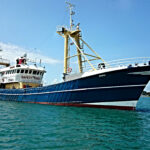23 of Kenya’s 47 counties have felt the devastating impact of recent flooding caused by above average rainfall. Urban areas always feel the effects of flooding due to higher runoff areas, reduced vegetation, constrained drainage and the extensive use of vulnerable land.
Flooding and other environmental disasters present a growing hazard for urban residents, travellers and businesses. Whatever we might think of an area’s resilience to such events, they are becoming more and more extreme and can overwhelm the best designed, most prepared cities in the world.
In high tempo, chaotic and environmentally challenging situations, our presence of mind can falter. Overcome by fear, devastated by loss and incapacitated by the cold it is crucial that we know how to respond effectively and avoid danger or harm.
Salama Fikira’s Afrika Knowledge Academy has compiled some top tips for dealing with any flooding:
- Stay informed. Use trusted sources such as news providers, emergency services announcements and warnings, public warnings and weather apps to allow you to prepare properly and to avoid potential danger.
- Evacuate Immediately. If there is a flood warning or clear signs of rising water levels, evacuate to higher ground. Make sure that ground is not likely to eventually flood. Know your escape routes off that ground in case you have to move again. Avoid low lying or flood-prone areas. This will reduce the likelihood of becoming trapped by rapidly rising water.
- Avoid moving water. Six inches of water is enough to knock you down. Moving water can be deceptively forceful. Water that looks calm can be moving rapidly. Flood waters can contain invisible obstacles that can knock you down or trap you.
- Avoid streams and rivers. Moving around or conducting business near streams and rivers during heavy rainfall is very dangerous due to the risk of rapidly rising water levels and being washed into a larger body of moving water.
- Re-think your need to be on the roads. Flash flooding can and does occur without warning. Flood waters can tear away the road surface and result in the surface of the road being much more dangerous than you know. Dirt roads are hazardous to drive on when wet and can disable a vehicle by bogging.
- Do not drive through moving or stationary water. Your vehicle can be washed away by only 30cm of moving water. Avoid the temptation to drive through, even if the water looks stationary. It is difficult to gauge the depth and a vehicle’s power can cut out in water, disabling electric powered windows and locks, making a flooded vehicle near impossible to escape.
- Be cautious of electricity. If your home or premises is flooded, turn off electricity at the mains to avoid potential electric shocks or even fires caused by water coming into contact with electrical components. Also be wary of collapsed power lines touching bodies of water in the streets.
- Test depth. If you must move through a body of water, use a stick or long item to check for depth or unexpected submerged objects.
- Communicate. Maintain communications with friends and family to ensure they are safe. Have the correct numbers saved on your phone for emergency response if required.
National Emergency response toll-free line- 0800 721571
Nairobi County Disaster Management Team- +254 202344599 +254 202222181
Kenya Red Cross emergency number- 1199
Nairobi Fire Service- +254 20 2222181
The Afrika Knowledge Academy’s mission is to provide individuals and businesses with simple, relevant and practical training designed to maintain safety and security. With enhanced knowledge, we are able to avoid, detect, delay, respond and recover from potential threats to our safety. Training will help you apply these behaviours to the real world.




